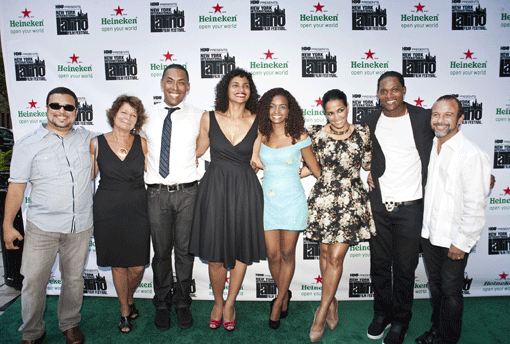Dominican filmmaker Leticia Tonos, director of the acclaimed new film La Hija Natural (The Love Child), talks with AQ Online about her rise in the film industry and the premiere of her new movie during Dominican Film Festival night at the New York International Latino Film Festival (August 15–21).
Interview by Wilda Escarfuller.
Americas Quarterly Online: What initially drew you to writing and directing?
Tonos: I was very shy as a child but very observant of people’s emotions, behaviors and interactions, all of which would eventually contribute to my skills as a director. I enjoyed being in the background in social gatherings to study the behavior of people and their expressions to help me develop characters for my movie.
AQ Online: You’ve been working on La Hija Natural since you graduated from film school. Describe the creative process for the movie. What are some of the underlying social issues?
Tonos: After I graduated from the London Film School I had a child. Despite becoming a mother and even before I entered film school this movie was always developing in my head as I conjured scenes, dialogue, backgrounds, etc. The social issues in the film are commonplace issues in the Dominican Republic and include such things as land rights, spousal subjugation and the high number of children born out of wedlock.
AQ Online: What type of reaction do you expect from a non-Latin American audience?
Tonos: While the film is in Spanish and based in the Dominican Republic, it is obvious to me that the Latino audience would be familiar with the film’s setting, including the language, and the characters’ mannerisms, such as the scene when the bartender is admiring Iris Chacón and listening to Antony Rios ballads in the background. These are things that a lot of Latinos can relate to. However, the film does have English subtitles so that another audience can make it their experience as well. Americans have a big appetite for foreign culture and hopefully this film can feed their appetite.
AQ Online: What has your experience been as a female writer/director in the Latin American film world?
Tonos: The experience has largely been welcoming, but there are moments that the level of respect people demonstrate for my ideas might not be as high as it could be because I am a female. However, it’s also an advantage because some people seek a women’s perspective. I try to avoid thinking that opportunities are scarce for women so that my work is not interrupted.
AQ Online: What are your future projects?
Tonos: The next big project has to do with Haiti, the Dominican Republic and France—and that’s as much as I can share right now.





